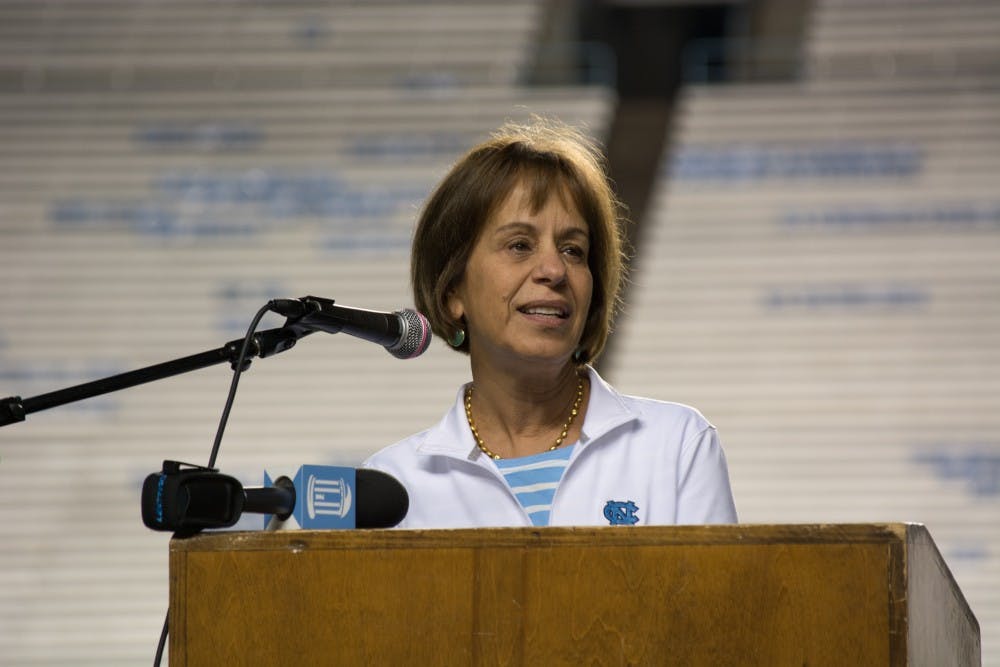In a university-wide message on Jan. 9, Chancellor Carol Folt said UNC administration will review its sexual harassment and discrimination policies in response to the #MeToo movement.
Folt, Felicia Washington, the vice chancellor for workforce strategy, equity and engagement, and Provost Robert Blouin wrote a letter posted to UNC’s website addressing the recent wave of women speaking out against sexual misconduct in the workplace, specifically through social media platforms with #MeToo.
“The issue of sexual harassment is on the minds of everyone, as we have watched thousands of women across the nation courageously come forward to tell their stories,” wrote Folt, Blouin and Washington. “The #MeToo movement has started a powerful and important dialogue in our nation and around the world, and it’s helping inspire a transformative and positive change in our society.”
Folt, Blouin and Washington said they are taking steps to create a culture on campus that is free of harassment.
“We are taking a fresh and critical look at policies and procedures across the University to make sure we are doing everything we can to create an inclusive and respectful culture at Carolina," they wrote. "We also are working to improve prevention measures, including evaluating and enhancing our training programs.”
The Equal Opportunity and Compliance Office said they had nothing to add to Folt’s comments.
Gloria Thomas, the director of the Carolina Women’s Center, said the center does not plan on changing its typical activities.
“I don’t anticipate that our work will change in response to Chancellor Folt’s message,” Thomas said. “We will continue to provide the advocacy and support to survivors, and education and awareness to community members as we have been, as long as this work is needed.”
In 2013, students submitted complaints regarding UNC’s handling of sexual assault reports under Title IX law, resulting in multiple federal investigations. In 2014, the University released a new policy on discrimination and harassment, outlining the process for students reporting and responding to cases of sexual assault. The University was also prominently featured in “The Hunting Ground,” a 2015 documentary about rape culture in American colleges.




